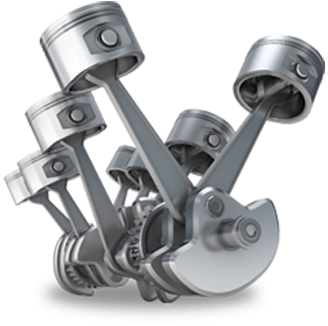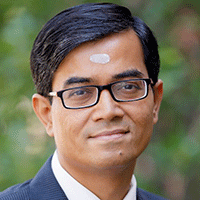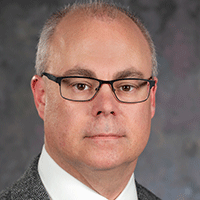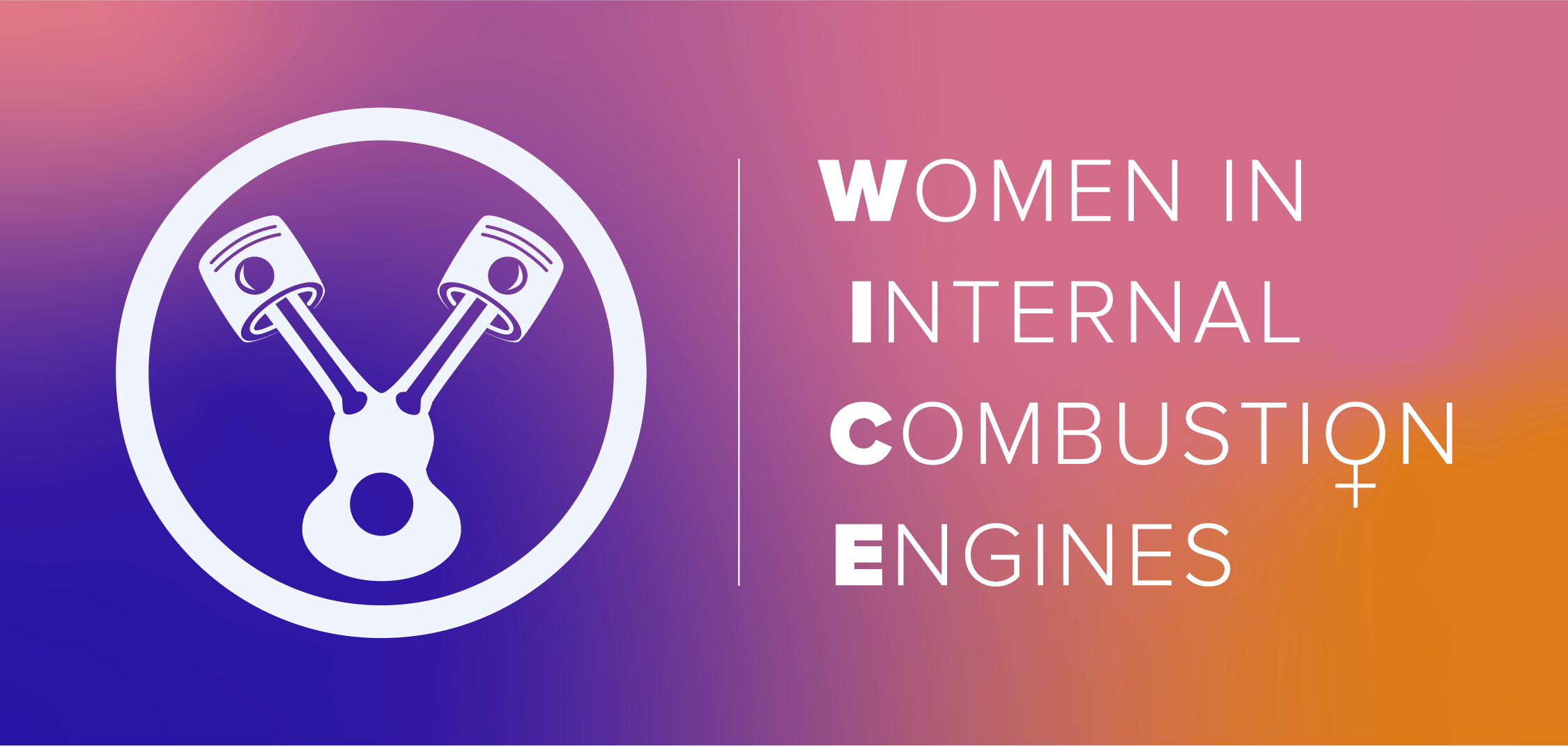Internal Combustion Engine Division
The Internal Combustion Engine Division (ICED) has been promoting the art and science of mechanical engineering of engines, encouraging and fostering research and development for mobile, marine, rail, generation and stationary applications and summarizing and publishing reliable data concerning these pursuits since 1921.

About
Mission and Vision
Recognize and promote advancements in the art, science, and practice of engineering in the field of internal combustion engine systems. The Division provides an inclusive forum for the documentation, worldwide dissemination, and recognition of technical achievements and diverse ideas related to internal combustion engine systems, for the benefit of humanity.
To be the premier technical community empowering our diverse membership to drive the advancement of internal combustion engine systems through an inclusive culture focused on engineering excellence.
Connect with the ICE Division by visiting the ICE Division LinkedIn Group Page.
ICE Division Operating Guide - Revised June 2024
The ICE Division Executive Committee has given its approval to the June 2024 revised Operating Guide. We encourage all ICE Division members to review the guide and contribute any suggestions for improvement.
How to Select the ASME ICE Division as one of your technical Division Interests and how to opt-in to receive communications from ASME.
Contact Us
For additional information, please contact:
Laura Herrera, ASME Sr. TEC Operations Manager, at HerreraL@asme.org.
Executive Committee
Dr. Sundar Rajan Krishnan, Chair
Professor, University of Alabama
Dustin Osborne, Vice Chair
Principal Engineer, Southwest Research Institute
Dr. Scott Curran, Conference Chair
Group Leader for Fuel Science & Engine Technologies Research
Oak Ridge National Laboratory
Dr. Andrea Strzelec, Conference Co-Chair
Sr. Research Scientist, USCAR
Sr. Research Scientist, UW-Madison Engine Research Center
Dr. Yuanjiang Pei, Member
Team Leader, Aramco Americas
Dr. Ronald O. Grover, Jr., Secretary
Staff Researcher, General Motors
Dr. Isaac Ekoto, Treasurer
Manager
Sandia National Laboratories
Dr. Yu Zhang, Member
EBU Technical Strategy and Integration Director
Cummins
Dr. Thomas Briggs, Industry Advisor
Institute Engineer - Powertrain Engineering Division
Southwest Research Institute
Dr. Kelly Senecal, Past Chair
Owner & Vice President, Convergent Science
Laura Herrera, Senior Manager, Technical & Engineering Communities (TEC) Operations
ASME
Women in Internal Combustion Engines (WICE)
Women in Internatl Combustion Engines (WICE) is an organization that aims to increase the recognition and representation of engineers within the internal combustion engine field by championing the inclusion of women and all technical individuals from a wide range of backgrounds.
We invite you to join this initiative!
WICE Committee
Cathy Choi, Chair
Knoxville Locomotive Works
Emily Bierman, Secretary
John Deere Turf & Compact Utility Division
Stefania Esposito, Outreach
University of Bath
Laura Herrera, Sr. TEC Operations Manager
ASME
Events
October 19 - 21, 2025
Milwaukee, Wisconsin, USA
Register
International ICE Forward Symposium
June 3 - 5, 2026
Bologna, Italy
Newsletters
The ICE Division newsletter will be published in January and July of each year. The newsletter is distributed to ICE Division members who have opted-in to receive communications from ASME. Contact Laura Herrera, ICE Division staff liaison, if you have any inquiries.
Summer 2025 ICE Division Newsletter
Winter 2025 ICE Division Newsletter
Summer 2024 ICE Division Newsletter
January 2024 ICE Division Newsletter
July 2023 ICE Division Newsletter
January 2023 ICE Division Newsletter
News & Updates
Dear ICED Members,
As a follow-up to our earlier announcement about the creation of the Transportation Systems Division (TSD), we would like to inform you that, effective Monday, November 3, your ASME division interest will automatically transition from the Internal Combustion Engine Division (ICED) to the Transportation Systems Division (TSD).This update ensures that all ICED members are seamlessly integrated into TSD, where the Internal Combustion Engine (ICE) Technical Community will continue to operate as a core technical community within TSD. You will continue to receive updates, participate in technical programs, and engage in activities under the ICE Technical Community within the new division.
No action is required on your part. This transition will occur automatically in ASME’s membership system.
We appreciate your continued engagement and look forward to advancing the next chapter of transportation innovation together. We welcome your thoughts and feedback through the TSD feedback form, and you can review or update your division interests at any time by following these instructions.
Sincerely,
Tom Lavertu
Senior Vice President, ASME TEC Sector Council
Kelly Senecal
Chair, ASME Transportation Systems Division Advisory Board
Past Chair, ICED Executive Committee
___________________________________________________________________________________________________________________________________________
Formation of the ASME Transportation Systems Division Executive Committee
The ASME TEC Sector Council has recently created the Transportation Systems Division (TSD) to serve as a platform for emerging and diverse technologies across land and sea transportation.
We are not seeking to appoint highly qualified and globally diverse leaders to serve on the TSD Executive Committee (EC). EC members may serve a maximum of four years, with each role held for two years.
The following executive committee roles are avaialble. Click on the respective links to learn more about the roles. Submit your interest by October 14th.
Contact Kelly Senecal at senecal@convergecfd.com, Transportation Advisory Board Chair, with any questions you may have.
- Chair
- Vice Chair
- Secretary
- Treasurer
- Membership Lead
- Honors and Awards Lead
- Communications Lead
- Events Lead
Dear ICED Members,
We’re writing to share an exciting development in the future of our community. ASME is forming a new Transportation Systems Division (TSD), and the Internal Combustion Engine Division (ICED) will serve as its foundational technical group.
This change reflects the growing scope of transportation-related innovation over land and sea—spanning not only internal combustion engines but also sustainability, safety, electrified powertrains, autonomous systems, and more. Rather than dispersing our efforts, we’re creating a unified, interdisciplinary home that recognizes and builds upon ICED’s proud legacy.
What does this mean for ICED?
- ICED will remain intact as a technical group within the new division, retaining its mission, leadership structure, webinars, and outstanding technical conference content.
- You will continue to submit papers, attend sessions, and participate in initiatives under the ICE Group.
- The ICE Group will play a leading role in shaping the direction of the new Transportation Systems Division.
- The ICE Group will continue to oversee all ICE applications, not just transportation. For example, if you work in stationary engine applications, this is still your home. This also opens up new opportunities to showcase ICE across both the Transportation and Energy domains within ASME.
We are committed to ensuring this transition is seamless, transparent, and beneficial for all members. Your voice, your expertise, and your identity as TSD ICE Group members remain vital—and now your impact will be amplified across ASME.
More details—including leadership roles, upcoming town halls, and opportunities to get involved—will be shared soon. In the meantime, please feel free to reach out with any questions or share your feedback via the following form by Friday, October 3.
Let’s drive the future of transportation, and IC engines, together.
Sincerely,
Tom Lavertu
Senior Vice President, ASME TEC Sector Council
Kelly Senecal
Chair, ASME Transportation Systems Division Advisory Board
Past Chair, ICED Executive Committee
ICED Webinar Series
The ASME ICE Division has been holding a Webinar Series titled "The Future of the Internal Combustion Engine". The goal of this series is to communicate the role of the ICE in our decarbonization society. Topics include light duty, heavy duty, combustion, electrification. alternative fuels, computer simulations, AI, and much more!
View the recordings of the webinars
We hope you join us for this exciting webinar series!
Sincerely,
The ICED Executive Committee
Despite numerous attempts to develop ammonia-powered vehicles in the past, none have successfully made it to widespread use, either on land or sea. Research in the 1960s and 1970s highlighted valuable technological challenges that needed to be addressed.
Today, with the global shift toward a low-carbon society, ammonia has gained renewed attention as both a key energy carrier for hydrogen and a potential fuel in its own right, despite its less favourable combustion characteristics. During this presentation, we will present a review of the challenges that need to be resolved to optimize the performance and pollutant challenges of ammonia-fuelled engines as well as highlighting some results of recent studies that illustrate potential engine control and aftertreatment strategies for addressing these challenges.
Speakers
Brian Kaul
Senior R&D Staff
NTRC at Oak Ridge National Laboratory
Christine Rousselle
Professor
University of Orleans, France
Moderators
Hunter Mack
Professor
University of Massachusetts Lowell
Vitaly Y. Prikhodko
Research & Development Staff
Oak Ridge National Laboratory
Honors & Awards
The ICE Division offers many awards to recognize leadership and contributions in the field of Internal Combustion Engines. Some of the more prestigious honors awarded by the division are below.
Society Awards
Division Awards
For all Division Award requests, please contact the Division Administrator.
Important Award Information For Recipients of Monetary Awards
Please note that honorariums cannot be distributed without receipt of applicable tax forms. If you are a recipient of a monetary award, you will be contacted by ASME staff regarding tax forms you will need to complete, as well as how to submit them to us.
ASME Journals
- Journal of Engineering for Gas Turbine and Power
- Journal of Energy Resource Technology (JERT)
- Open Journal of Engineering
Technical and Engineering Communities Sector
Technical Committees
-
To promote the art and science of internal combustion engines within the scope of the technical committee.
-
To encourage and foster research and development and publish reliable data of engineering importance pertaining to subjects within the committee’s scope.
-
To direct attention to outstanding engineering achievements within the scope of the committee, with recommendations and suggestions as to the suitable recognition for such achievements.
Technical Committees
- Off-Road, Rail, and Marine Engine Systems
- Fuels, Lubricants, and Carbon Management
- Advanced Combustion, Flows, and Sprays
- Powertrains, Hybridization, Engine Controls, and Engine Design
- Emissions Control (CLEERS at ICE Forward)
- Modeling and Simulation
- Small Engine Systems (New for 2025)
- Light Duty (Passenger Vehicle) Engine Systems (New for 2025)
- Medium-Duty, and Heavy-Duty on Road Engine Systems (New for 2025)
- Rail Transportation Symposium (New for 2025)
Links
Links to helpful online resources related to the division are below. If you have suggestions for other resources, please contact the division chair or ASME staff.
- ASME Landmarks Program
Landmarks, sites and collections of historic importance to mechanical engineering are designated by ASME through its History and Heritage Landmarks Program. - ASME History and Heritage
ASME fosters the preservation of mechanical engineering innovations used in a wide range of applications through its History and Heritage program. - CIMAC (International Council on Combustion Engines)
A non-profit association that brings together manufacturers, utilities, suppliers, scientists and others who are interested in combustion engines.
Holding effective meetings is crucial to utilizing the aggregated knowledge of the meeting participants. This document will provide guidance on achieving this important goal of every meeting.










.png?width=200&height=200&ext=.png)
.png?width=200&height=95&ext=.png)







